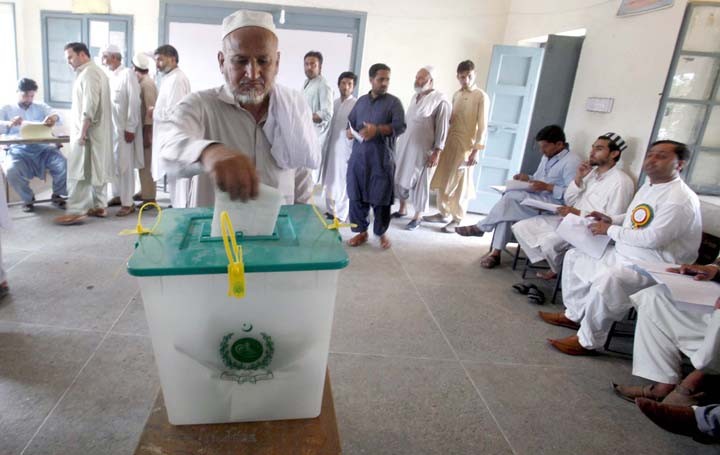
Post-merger tribal areas safely sail through election to reach assemblies

After the merger of the tribal areas in Khyber Pakhtunkhwa, tribespeople, for the first time, were able to elect their representatives for the Khyber Pakhtunkhwa Assembly in the election held on July 20.
The elections had been rescheduled citing security threats from terrorist groups. However, there was no incident of serious violence in any of the seven tribal districts and voters exercised their right to vote in a peaceful environment.
Initially, it was decided that local government elections would be held in the tribal districts six months after the merger.
Local government elections have not been held in the Fata since 1947. Gen Pervez Musharraf had asked tribal elders to choose their representatives through head count. However, those so-called public representatives had no powers and lacked access to development funds.
Some objections have been raised to delimitation of constituencies. For example, the size of PK-107 (Bara subdivision in Khyber tribal district) is 124 kilometres while its adjacent constituency PK-106, comprises only eight square kilometres.
Almost all political parties, including the Pakistan Tehreek-i-Insaf (PTI), the Pakistan Muslim League Nawaz (PMLN), the Pakistan People’s Party (PPP), the Awami National Party (ANP), the Jamiat Ulema Islam-Fazlur Rahman group (JUI-F), the Jamaat-i-Islami (JI) and the Qaumi Watan Party (QWP) fielded their candidates on all 16 constituencies, but the independent candidates managed to win 6 seats, while the PTI won five.
The results were a disappointment for the PTI leadership in KP as the party had expected to win 10 to 12 seats.
Senior PTI leaders in Peshawar told The News on Sunday that all party tickets were awarded to family members and close relatives of the party parliamentarians from the tribal districts or resourceful people. Other political parties too had chosen well-off people for party tickets, according to tribal elders and politicians.
Most of the candidates were well-established businessmen. Jamiat Ulema-i-Islam-Fazlur Rahman group secured three seats and Awami National Party and Jamaat-i-Islami managed to win one seat each.
It was widely believed that like the previous general elections, the PTI would sweep the election. Rival candidates of the PTI ticketholders accused them of using government machinery and announcing development projects to win voters’ sympathies. Some candidates of the opposition parties said they were unable to visit some of the places in their constituencies and meet their voters, apparently, due to security constraints.
Prime Minister Imran Khan had held public meetings and announced some development projects, including Sehat Insaf Card. The party was also accused of ignoring some old and loyal party activists in some tribal districts while distributing party tickets.
Wealthy newcomers who got PTI tickets faced tough resistance from their own people who had quit the party after being denied tickets and contested the election as independent candidates. The ruling party has now started wooing the independent winners to join the PTI.
One independent MPA-elect from Bara in Khyber tribal district, Mohammad Shafiq Afridi, has already held a meeting with Chief Minister Mahmood Khan. The chief minister, during a recent press conference, claimed that all independent MPAs were in his pocket.
Also read: Women’s complaint cells
There is a perception that the independent lawmakers must join the ruling party to get funds for development projects in their constituencies. Voters expect the newly-elected MPAs to solve their problems. Before the Fata-KP merger, political agents entrusted with development funds for Fata used to spend them at their own discretion.
The government had earmarked an annual grant of Rs120 billion for the tribal districts -- Rs82 billion from this fund will be spent on development projects. The tribespeople wanted their representatives to raise issues of health, education and drinking water in the assembly.
There is a general complaint during the election campaign that health workers (including doctors and support staff) and teachers don’t show up to work regularly. Schools in many areas have been destroyed during military operations. Most children are now forced to receive education in tent schools.